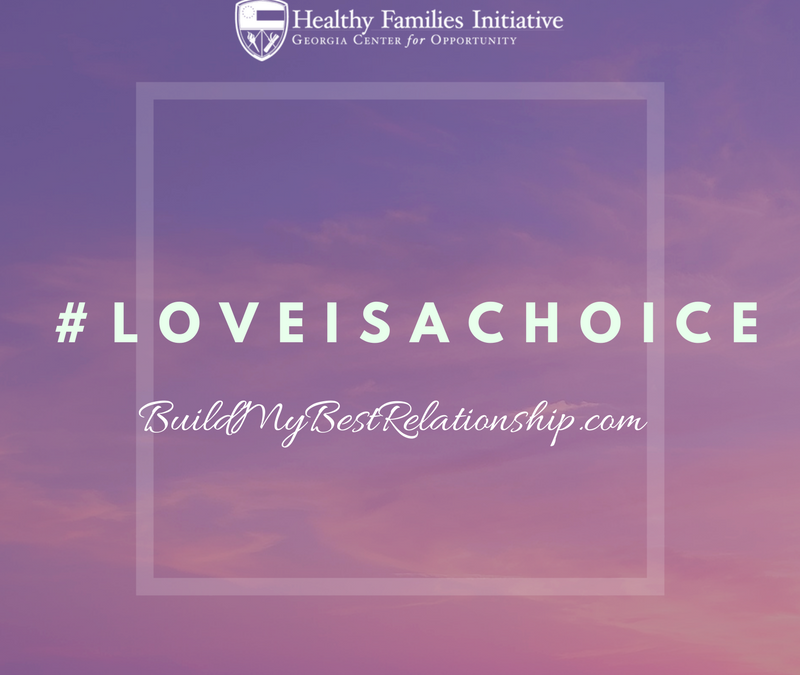
by Georgia Center for Opportunity | Jul 25, 2018
There’s an old saying that a rising tide lifts all boats. This seems to be true in today’s booming economy—with low unemployment rates at the state and national levels translating into historical lows in communities that often lag behind. For example, economic fortunes for African Americans are showing sustained signs of improvement, with the most recent June 2018 unemployment rate coming in at 6.5 percent, up slightly from May’s all-time low of 5.9 percent.
And while improving employment prospects are certainly encouraging signs for a community that continues to experience unacceptably disparities on most socioeconomic measures compared to other groups, a new study from the American Enterprise Institute (AEI) offers even more evidence that African American men are making steady gains toward achieving the American Dream.
In Black Men Making It in America: The Engines of Economic Success for Black Men in America, well-known marriage and family researchers Brad Wilcox and Wendy Wang team up with fatherhood expert Ronald Mincy to examine the institutional engines that form the foundation for black male success.
Some key takeaways from this AEI report:
- The economic standing of black men has improved dramatically, with 57% now in the middle class or higher as adults today—up from 38% in 1960. Even better, the share of black men who are poor has fallen from 41% in 1960 to 18% in 2016.
- While higher education and full-time work are powerful engines of success for black men in America, so, too, is participation in institutions such as marriage, church, and the military.
- Contact with the criminal justice system remains a significant obstacle to success for black men. By midlife, only 28% of black men who had contact with the criminal justice system when they were young have moved into the middle or upper class, compared to 52% of black men who had no contact with the criminal justice system at a younger age.
Here at Georgia Center for Opportunity, we believe in a simple concept called the “success sequence,” which says that a good education leads to a stable job—which in turn leads to a flourishing home life and personal success.
Clearly, this AEI report reinforces GCO programs like Hiring Well, Doing Good and our Prisoner Reentry Initiative, which aim to remove barriers to opportunity and put Georgians back on a rising tide—or sequence—of success that lifts individuals, then families, out of generational poverty into flourishing communities.

by Georgia Center for Opportunity | Feb 9, 2018
It’s National Marriage Week, so it’s a great time to take an inventory of your marriage. Here are some tools to help you more fully engage with your spouse and help strengthen your marriage.
- Do you know your love language? If not, or it’s been awhile, take the online quiz to discover your love language. Click Here.
- While this tool does have a cost, the Couples Checkup, is an online assessment to help you and your spouse identify the strongest portions of your relationship and the areas where you might need a little more TLC.
- According to AJC.com, these are the best 8 places in the Atlanta area for free or under $20 date night.
For more information on how you can better engage/strengthen your marriage, visit BuildMyBestRelationship.com.

by Georgia Center for Opportunity | Feb 7, 2018
Since the 1970s the marriage rate has gone from 80 percent of adults being married down to 52 percent. This rapid decline in marriage has caused an upward spike in the number of single parents living in poverty. How do we as a community combat this negative spiral downwards? Helping to rebuild healthy marriages is a good first step.
Because of these shocking trends, the Healthy Families Initiative is participating in National Marriage Week which begins on February 7th and ends on Valentine’s Day.
The week is designed to shine a spotlight on the growing decline of marriages and help strengthen marriages and communities. The Healthy Families Initiative will host Love is a Choice, I Choose You, on February 10th, an evening for couples to renew their marriage vows and celebrate the joys of being married. This event will also be part of a Facebook campaign #LoveIsAChoice, which will be a week-long campaign of daily challenges to become more engaged in your marriage.
For centuries marriage has been the weapon of choice to combat poverty, and today it is still the best defense. In fact, marriage is so important to strengthening today’s society, that Governor Nathan Deal has declared the week National Marriage Week within the state of Georgia. Marriages build strong communities and happier people.
Marriage has financial gains
- Married men are more successful in work as well, getting promoted more often and receiving higher performance appraisals.
- As for women, married women earn up to 10% more than their single peers.
Married people live longer
- Single men have mortality rates that are 250% higher than married men.
- Single women have mortality rates that are 50% higher than married women.
Married people are mentally more healthy
- Married people report lower levels of depression and distress, and 40% say they are very happy with their lives, compared to about 25% in single people.
Married people have more sex
- About 40% of married people have sex twice a week, compared to 20-25% of single and cohabitating men and women.
Statistics are from The Case for Marriage Why Married People Are Happier, Healthier, and Better off Financially by Linda J. Waite and Maggie Gallagher.
For more information about strengthening your marriage and the FREE workshops that can help you accomplish your marriage goals, visit BuildMyBestRelationship.com.


by Georgia Center for Opportunity | Oct 23, 2017
Studies show that couples who spend quality time together stay together.
That’s why 75 couples in the Norcross and Peachtree Corners area have decided to take an evening to invest in their relationship by attending the Healthy Family Initiative’s date night event, “Twogether Forever: You and I.” The evening, which has sold out completely, will be a time of romance for couples to reconnect while they enjoy dinner, dancing, entertainment, games, and more.
While it is often difficult for couples to break away from responsibilities, the evening aims to be free of distractions, offering a time strictly devoted to marriage relationships.
Taking time for a date night improves the quality and stability of marriages. Husbands and wives who engaged in spending time with their spouse at least once a week are approximately 3.5 times more likely to report being “very happy” in their marriages, compared to those who enjoyed less quality time with their spouse.
Healthy marriages are the cornerstone of strong families, which means investing time into your romantic relationship is worth every minute. Our goal at HFI is to provide the tools and time for couples and families to connect in a meaningful way, making their relationships and family dynamics indestructible against all of the stresses life may bring.
For more information about this date night/join the waiting list, or learn more about future events, visit HFIGeorgia.org.

by Georgia Center for Opportunity | Oct 11, 2017
Many years ago we began laying the groundwork for the Healthy Families Initiative (HFI), and two years ago we kicked off a public campaign to change the hearts and minds of those in the Norcross and Peachtree Corners areas. Your support, partnerships, and prayers have allowed us the opportunities to continue to expand the HFI program in ways we originally only dreamed about. So, it’s with great excitement we share with you exciting news about the growth of HFI.
Online classes are here! Participants can get all the same valuable information and tools from the FREE community classes, but in the comfort of their home and at their own pace.
It is our hope that having a FREE online option will allow more people to build healthy, happy, and lasting relationships with their spouses, families, and children.
As of today, the following courses are available for enrollment through the HFI website:
- ePrep: Maximizing Your Romantic Relationship
- For Dating, Engaged, or Married Couples
- This course is for couples who want to make their relationship the best it can be. It will challenge you to think about things you’ve never thought about before and help you to see yourself, your partner, and your relationship in a whole new light.
*This course uses material from Prevention and Relationship Enhancement Program (PREP).
- Head Meets Heart (formerly known as Sex, Lies, and Relationships)
- Primarily for singles
- This program teaches students how to pace the development of a new relationship in a healthy way, and it also covers the five areas in a partner’s life that accurately predict what type of person they’ll be in a long-term relationship.
* This course uses material from Dr. John Van Epp’s How to Avoid Falling in Love with a Jerk or Jerkette.
We know schedules are busy, and the online courses offer a self-paced journey to more effective communication in your life. Plus, they’re all free!
It is our goal to continue to grow the online courses offered – stay tuned for more!

by Georgia Center for Opportunity | Aug 25, 2017
Being a dad is one of the greatest challenges in life, but it often gets overlooked. Though the everyday joys of being a father are overshadowed in pop culture by fast-paced news and Hollywood gossip, that doesn’t mean celebrity dads aren’t talking about how their kids are changing their lives for the better.
Beginning August 25, the Georgia Center for Opportunity’s Healthy Families Initiative is introducing #FatherhoodFridays on social media, celebrating fatherhood in pop culture. The launch begins with a series of graphic ads featuring celebrity quotes highlighting the joys of parenthood.
HFI is currently preparing for two fall classes on fatherhood. Conversations of a Father, which is accepting registrations for the dates of September 30 and October 14. The full-day class for men reinforces characteristics they need to be good fathers, 24 hours a day, seven days a week. The class is free to attend, and breakfast and lunch will be provided.
For more information, visit the Healthy FamiliesInitiative online.
You can check out the series below, or watch for the ads every Friday on Facebook.


















